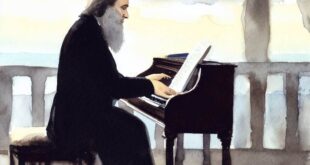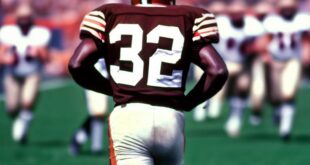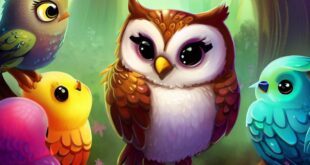By Michael Masterson
“If you want to be a writer, you have to write.”
I was sixteen years old when my father said those words to me. They were both kind and cruel. And I never forgot them.
The first time I can remember wanting to be a writer was several years earlier. I was eleven or twelve years old. It happened in the kitchen on a weekday night.
I had written a poem for Sister Mary Something at St. Agnes elementary school. My rhyming quatrain (AABB) was titled, pretentiously, “How do I know the World Is Real?”
I was sitting at the kitchen table finishing it off when my father walked up behind. I could feel him reading over my shoulder. I felt anxious, embarrassed. This little thing I was making, this first poem, was being scrutinized by a very serious critic. In addition to being the man who sat at the head of the table at dinner and in the living room thereafter, my father was a credentialed writer, an award-winning playwright, a Shakespearean scholar and a teacher of literature, including poetry.
I had seen my father, on Saturday mornings, hunched over student essays, muttering complaints about “virtual illiterates” and mockingly reading out loud passages to my mother that sounded perfectly good to me at the time but elicited derisive laughter from her. My father understood the secret-to-me clues of good writing. I didn’t feel at all comfortable having my fragile young poem exposed to the awesome danger of his critical mind.
So there I sat, hoping he would be distracted by something and go away but he didn’t. It must have only been a minute, but it felt much longer. Then I felt his hand on my shoulder, gentle and warm. “You may have a talent for writing,” he said. And then he turned his attention to the refrigerator, took out a beer and went back to his reading chair in the living room.
I wrote lots of poetry in the months that followed and I began to think of myself as a writer. I liked that feeling. But soon other interests – touch football, the Junior Police Club, Virginia Lanzo – crowded themselves into my life.
Gradually I wrote less and less. I still yearned to be a writer and so I began to feel guilty about not writing. To assuage my guilt, I promised myself that my other activities were life experience and that I needed life experience to become the good writer I wanted to be.
In developing this excuse for not writing, I was building a structure of self-deception that so many people live inside when they abandon their dreams. From the outside it looks like you are doing nothing. But from the inside you know that you are in the process of becoming, which, you convince yourself, is the next best thing to being.
The truth was I never really understood what it meant to be a writer. I just knew that it was something I wanted to become. And although I had traded in my love of writing for a passion for football and the He Man Woman’s Hater Club and for Virginia Lanzo, I told myself that it was okay not to write so long as I spent some time now and then wanting to be a writer.
This was the shape of my delusion when, at 16, I asked my father finally, “So how does a person become a writer?”
I will never forget his answer. He said, “The way to become a writer is to write.”
So many people live their lives failing to become what they want. They do so because the “can’t find the time” or the opportunity to get started.
How many times have you heard someone talk about how one day they will do what they always wanted to do – to practice medicine or to play guitar or to travel the world or paint pictures or write a book? And when you hear people you like expressing sentiments like those what do you feel? Happy because you are confident that one day they will accomplish their long-held goal? Or sort of sad for them because you are pretty sure they never will?
And what about you? What is it that you want to be but haven’t become? What goal or project or task do you keep talking about accomplishing yet never do?
When my father told me that “writers write,” he was saying two things:
That I had lost the right to call myself a writer when I stopped writing.
That I could regain the title the moment I started writing again.
If you spend a while ruminating on these thoughts you may find them both disturbing and liberating.
In my case, I was disturbed because what I wanted my father to say was that the way to become a writer was to read books about writing and then take courses on writing and then perhaps become an apprentice to a writer and then begin writing little bits here and there and finally, after 3 or 10 years of education, preparation and qualification, I would somehow automatically become a writer. In the meantime, I would be a writer in training – which seemed to carry with it the prestige of being a writer without the responsibility of actually writing.
But my father’s definition wouldn’t allow that. As long as I was studying writing or preparing myself to be a writer and yet not actually writing I wasn’t a writer. It was as simple as that.
For many years I struggled with this pronouncement and subconsciously resented my father for making it. Why did my father want me to feel bad about not actually writing? Why wouldn’t he encourage me to do what I wanted to do, which was to prepare to become a writer?
It seemed sort of mean and unnecessary, a fire-and-brimstone approach to career counseling. “Unless thy daily toils comprise the holy act itself, you reside in the valley of the faithless.”
Lots of people feel this way: that they can keep their dream alive and derive some of the ego satisfaction they hope their dream will give them simply by living in a state of becoming. “I am not yet the person I want to become, but so long as I continue to express a wish to become that person, I keep that possibility alive and deserve credit for doing so.”
Yes, you’ll be a great guitar player one day so it really doesn’t matter that you can’t play a single chord now.
My father was telling me that if I wanted to become a writer the first thing I had to do was to refuse to accept any psychological credit for wanting to be a writer.
Unless I was actually writing I would never be a writer.
It didn’t matter how much I wanted to be one, how much I knew about writing or how many degrees and certificates I would earn. If I wanted to become a writer there was only one thing I could do: start writing.
I didn’t understand this until many years later, but in that terse definition my father was also telling me that all the formal, official, legal and socially acceptable qualifications for being something that you want to be are ultimately bullshit.
If you really want to do something, don’t worry about qualifications, credentials and certifications, just do it.
Just do it. That’s Nike’s slogan. And mine too. If you have a dream deferred, it should be your slogan too.
Accepting my father’s lesson was like learning to swim in cold water — painful at first but invigorating after I got used to it. After the initial disappointment of giving up the delusion that the state of becoming a writer was as good as being one I had no choice but to jump over the becoming stage and simply be.
I did that by writing. Every day. And when I learned the secret of getting up early and writing first thing in the morning – hours before other people trailed into work – then I began to really live my dream.
These days I usually get to the office between 6:30 and 7:00 and the first thing I do is brew a cup of coffee and fire up the computer. There is no better feeling for me than to get going, sometimes by writing in my journal but more often by tackling something tougher, like a book chapter, first thing in the morning when the office is dark and quiet.
Of all the many pleasures of being a writer – the finishing of the manuscript, the collaboration with editors, seeing the book for the first time and even the best seller lists and parties – the purest and finest for me has always been the first few hours every morning when I am in a writerly groove.
What I am saying is that the best part about being a writer, I have discovered, is the writing.
To enjoy that best part, you don’t need to be working at a certain level nor do you need to have taken so many hours of classes or received any diplomas, certificates or degrees. All you need to do is to do the thing you want to do. Just do it!
Here’s a bonus thought: the best way to become something special is also the fastest and the easiest: just start doing it. Don’t wait for the proper time. Don’t wait till you’ve finished your education. Don’t insist on getting all your qualifications first. Just start doing it.
That, I realize now, was the other side of what my father was telling me. If a writer is someone who writes – and not someone who has an MFA in Creative Writing or even someone who collets a check for writing – then I could become a writer simply by starting to write! I didn’t have to take any courses or complete any qualifications or get someone to pay for my writing.
All I had to do was write.
I become a writer the moment I start writing and I cease to be a writer the moment I stop. From an existential perspective, this is exactly right. And if you can think existentially, you will see that this is exactly how it should be. If you live by this existential perspective, nobody can stop you from becoming what you want to be and you don’t have to wait for anyone’s approval or acknowledgement. You just make a decision to become and then you become.
Two great American poets, Emily Dickinson and Charles Bukowski, became writers this way. Neither had any formal education in writing or was qualified to write poetry in any way. They just began writing and kept writing and eventually their writing became better (which is really not the point) and recognized as great poets (which is also not the point.) They became writers by writing. Nobody could stop them. And they didn’t have to wait.
This idea may apply to the dream of becoming a writer, one might argue, but what if your dream were to be a doctor or a lawyer or a professional basketball player?
Here is where we run into a little snag. Certain professions require degrees and certifications. And others require extremely high levels of skill. You can’t become a doctor simply by doctoring. Can you?
I’d say yes you can. If your dream of being a doctor (or a lawyer, etc.) entails getting paid for your work, then you will have to go through the officially sanctioned process that the people in charge, in their infinite wisdom, have established for the good of the community. But if your dream is to do what doctors are supposed to – to help heal people, then you can become a doctor, albeit a non-professional folk doctor, simply by starting to help people heal.
In choosing the doctor dream I am purposely pushing this idea to its limits to make a point. I recognize that being a good doctor, as in being a good healer, requires a good deal of knowledge and skill. But I’m not talking about becoming good at something (Just as my dad was not talking about becoming a good writer.), I’m talking about becoming what you want to become, about living your dream.
If you want to be a doctor in the sense of healing people then nobody can stop you. You can be thrown in jail if you are prosecuted for practicing medicine without a license, but if you want to heal and are careful about staying legal then you can go ahead and become a healer immediately.
Just start healing!
Before you write in to tell me how irresponsible I am, let me say that I am not advocating that ETR readers practice medicine without licenses. What I am saying is that if you want to be anything, even something that in the regulated world requires education and certification, you can become that person simply by doing the thing you want.
So what is the best way to become a guitar player? Start playing that guitar.
And what is the best way to become a lyricist? Just write those songs.
And what is the best way to become a basketball player? Start shooting those hoops.
Don’t worry about not being qualified. And don’t worry about not getting paid for it. If you have a dream that’s been long deferred, don’t spend another day talking about what you will do one day, just do it.




